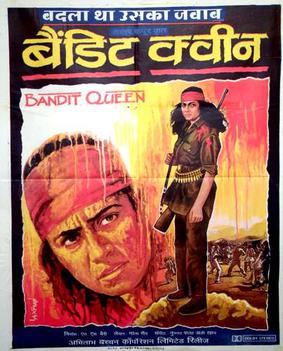 The Indian movie, The Bandit Queen tells a similar story based on the life of Phoolan Devi. There are a few differences, first that it is set in India, second that Phoolan turns to Muslim criminals for support against the Hindu higher castes, and that Mukhtar Mai has become an activist rather then a criminal. In the last point there is a small glimmer of hope. That a similar story is set among the Hindus of rural India highlights that this is not about Islam so much about tribalism.
The Indian movie, The Bandit Queen tells a similar story based on the life of Phoolan Devi. There are a few differences, first that it is set in India, second that Phoolan turns to Muslim criminals for support against the Hindu higher castes, and that Mukhtar Mai has become an activist rather then a criminal. In the last point there is a small glimmer of hope. That a similar story is set among the Hindus of rural India highlights that this is not about Islam so much about tribalism.The Washington Post article on the acquittal of Mai's rapists has a pair of revealing paragraphs that shed light on the nuts and bolts of Pakistani society:
…Pakistani women’s advocates said they feared the ruling will reinforce some of the cruelest traditions relating to women in rural society, where justice is meted out by semi-literate village leaders and the dominant land-owning clans wield more power than the police.The first paragraph cited highlights the general lack of rule of law in the face of clan affiliation. The second paragraph notes that the ruling Pakistan People’s Party – which is full of Westernized-leaders and includes figures who have been assassinated for standing against Pakistan’s draconian blasphemy laws - is also a product of the clan structure.
…In the interview, Mai said she feared violence from the freed defendants and noted that their clan has powerful local patrons in the ruling Pakistan People’s Party. But she said she was determined to keep helping girls in her community study, gain confidence and demand their rights.
Pakistan (and all of south Asia) is a complicated place.
No comments:
Post a Comment